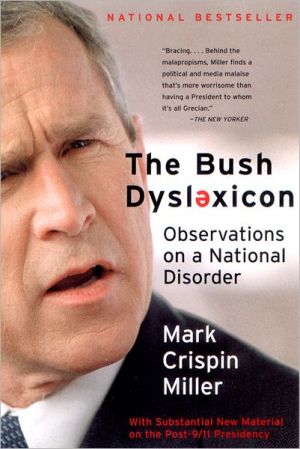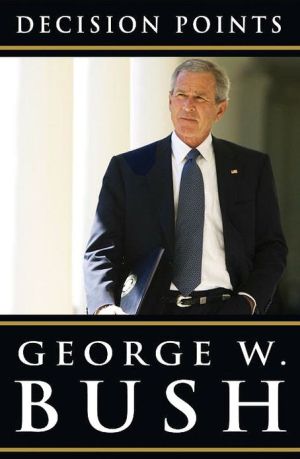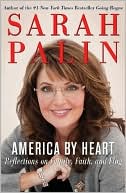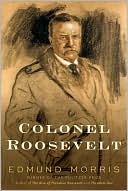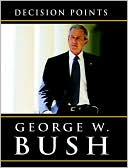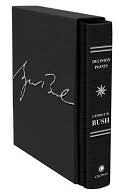The Bush Dyslexicon: Observations on a National Disorder
The Bush Dyslexicon is a raucously funny ride—whether it's Bush envisioning "a foreign-handed foreign policy" or Miller skewering vociferous cultural conservatives like William Bennett and Lynne Cheney for their silence on Bush's particular "West Texas version of Ebonics." But there is also a strong undercurrent of outrage. Only because our elections have become so dependent on television and its emphatic emptiness, says Miller, could a man of such sublime and complacent ignorance assume the...
Search in google:
"A particularly astute analysis of the television coverage of the campaign, the election, and the political aftermath."—Newsday Robert W. McChesney It should be required reading for those crazy souls who—like Mark Crispin Miller—still believe in this country.
\ \ \ \ Chapter One\ \ \ LOOK WHO'S TALKING\ \ \ On picking up The Bush Dyslexicon, you may think you've seen this sort of thing a hundred times before—and not only in bookstores but on TV. This book, you figure, must be just another snickering ad hominem attack on yet another U.S. president—a blast of easy satire, meanly motivated. On the one hand, it might be a piece of laughing propaganda by, or for, the party out of power, in this case the Democrats now doing to George W. Bush what, say, the Republicans, and/or the Christian Coalition, did to Bill Clinton or what the Democrats had done to Richard Nixon or what the right had done to FDR: putting out a mocking version of "the record," full of campaign lies and comic gaffes and damning statements taken out of context. Or this book might be a mere commercial venture, with no partisan affiliation—a lite anthology of famous bloopers, offering a bound equivalent of an evening's worth of campaign-season stand-up, TV's sharpest wiseguys taking on the latest round of flubs and pratfalls. Thus this Dyslexicon would fall into the rich—and often lucrative—tradition of David Frye (doing Nixon), Chevy Chase (doing Gerald Ford), countless mimics doing Jimmy Carter, and so on, right up through the last campaign, when everyone was doing the "robotic" Gore and Bush the Bumbler. And so whether you regard it as a partisan assault or an attempt at cashing in, this book may strike you as either a cheap shot or a guilty pleasure, depending on which man you voted for—assuming you could vote, or even wanted to.\ First impressions often tell the truth, as I will argue here. Your first impression of this book may be off the mark, however. For one thing, the Dyslexicon is not a piece of party propaganda. Its aim is not to move the masses to take some simple action, nor is it part of any broader effort by the Democrats. (As a New Yorker, I could vote safely for Ralph Nader, and I did so with a certain wary pride.) Nor does this book play any propaganda tricks. It includes no items altered or abbreviated, nor is it cunningly selective, but rather reprints passages at length and places entries in their proper context—at times even debunking certain unfair raps against this Bush or his father. Most important, this book does not promote the dangerous simplicity that marks all propaganda, good or bad, backward or enlightened. ("All propaganda is a lie, even when it is telling the truth," as George Orwell put it.) While it is clearly "anti-Bush," in other words, it is not a tacit advertisement for some simple other way. (Indeed, its tacit purpose is to warn against the sort of warlike either/or that is destroying our democracy, through both the GOP and major media.) On the contrary, this book admits complexity, honoring paradox and ambiguity—a flexible approach that doesn't make for propaganda, which tightly answers every question so as to leave you grinning in assent.\ While it promotes no party line, neither is this book a mere anthology of funny bits. Amusing as it often is, The Bush Dyslexicon has not been crafted just for laughs, although that would have been an easy job. For one thing, such manipulation would have been dishonest—and irrelevant, because the situation that we're in today is really not so funny. Even if our president were the cheery cretin that such satire makes him out to be, it wouldn't make our plight a comic one, for he has a highly seasoned, wholly ruthless, and, for that matter, deeply humorless cabal of rightist pols and operatives around him—and that's no joke. In any case, our president is not an imbecile but an operator just as canny as he is hard-hearted—which is to say that he's extraordinarily shrewd. To smirk at his alleged stupidity is, therefore, not just to miss the point, but to do this unelected president a giant favor since, as Shakespeare's Prince Hal reminds us—and as Bush himself has often said—it suits a politician to have everybody thinking he's a dunce, especially if he wants to do things his way. The satire that sells him short, therefore, can only work to his advantage, by blinding us to his team's big-time plans and causing us to overlook his own prodigious skill at propaganda.\ Far from merely goofing on this president, then, this book is meant to shed some light on propaganda in our time. The Dyslexicon attempts to give the lie to that enormous wave of propaganda—a joint production of the GOP and major media—whereby George W. Bush was forced on us as president, and then, after his inauguration, hailed almost universally for his amazing charm, his democratic ease, his rare ability to be all things to all Americans, and so on. Our experience of this transparent coup has been disorienting from the start. On the one hand, TV has clearly shown the truth about him—with his own inadvertent help, since Bush is strangely frank about himself. His body language bellows his uninterest, his distraction, his uneasiness, his callousness; and he tends to blurt out all or part of what he's really thinking, even as he's trying to lie about it (a linguistic struggle that intensifies his incoherence). Meanwhile, his handlers and the mainstream media all keep on trying to play the revelations down, forever countering the obvious with lots of upbeat spin and tactful silence. Thus TV keeps on sending us an eerie double message, by showing us one thing and telling us another. Those who want to buy the pitch prefer the latter, naturally, while those who just can't buy it feel as if they must be going crazy, what with all those smooth authoritative voices claiming that this man should be our president—when we can see, and have seen all along, that that is simply not the case.\ Thus we are the victims of a strange new national disorder. It is as if the U.S. body politic were itself afflicted with a corporate version of dyslexia. The individual dyslexic cannot learn to read because he is unable, for whatever reasons, to translate letters into sounds. Because he can't decode those printed symbols for their phonic content, the writing on the page can make no sense to him. Today our body politic is comparably disabled, although it isn't written language that's the problem. The head that drives that body forward is, of course, the media machine—the busy neural network of producers, editors, anchors, journalists, and pundits, all subtly guided by the propagandists of the right. While it has no trouble scanning press releases or providing copy for the TelePrompTers, that swift, collective mind is fatally dyslexic when it comes to doping out the very spectacle that it presents to us. Unable to perceive the glaring daily evidence of absolute hypocrisy and cynical manipulation, it cannot read the writing on the wall—which, meanwhile, is crystal clear to many of the rest of us. The dyslexics at the top may be extremely savvy, yet they lack (to quote Orwell again) that all-important knowledge "in the bones" whereby we try, down here, to make our way. Seeing that it's all gone wrong yet always hearing, from on high, that everything is perfectly all right, we each feel—whether we can read or not—as helpless and perplexed as any undiagnosed dyslexic faced with street signs, menus, newspapers, and exams.\ Against all that, The Bush Dyslexicon is meant to set the record straight: to remind us of the truth that TV shows us, even as it keeps on lying about it—much like the president himself, who, unless he knows his script by heart, often tells the truth despite himself, and does it most transparently when he is lying. (In this he is much like his dad, as we shall see.) By thus corroborating what TV so viscerally conveys, the book may also help dispel the great myth of "the liberal media"—a preposterous notion (or Big Lie) that Rush Limbaugh and his screaming brethren have long since sold to millions of Americans. And, more subtly, by pointing out the truths that television has revealed to us, this book may also shed some light on the bizarre postmodern form that propaganda often takes today, here in the culture of TV—wherein the falseness of the spectacle before us is a sort of open secret, obvious to any viewer who wants to see it and, strangely, all the more deceptive for that fact.\ \ \ FIRST IN HIS CLASS\ \ \ Of all his flaws, the president's illiteracy is—or was—the one most noted by the media. Governor Bush's way with words (and logic, and books) got prominently covered in the months before Election Day, although journalists eased off as time went on. His bite-sized gaffes were perfect for TV, which duly replayed some of them, while Frank Bruni of the New York Times tracked the candidate's most flagrant boners. (Meanwhile, long lists of Bushisms—carefully compiled for Slate by Jacob Weisberg—crisscrossed the country via e-mail so that the Democratic precincts of all cyberspace were finally saturated by November 7.) More influentially, the televisual concentration on Son of Bushspeak—George H. W. Bush having had a similar problem—extended quickly to the realm of late-night comedy, which is the surest way to the nation's consciousness. (Of course, the shtick on Bush was more gleeful, and far more insulting, than the tittering journalistic bits.) Such reportage-cum-stand-up did the trick, to some extent. Soon everybody knew that Bush could not pronounce "subliminal," while few had heard—or ever would hear—of his neglected military service, his many shady business dealings, or his close ties to the likes of Representative Tom DeLay, to name a few of his more substantive and complicated failings.\ The governor was not the first American presidential candidate to stand accused of gross illiteracy. In the fierce campaign of 1828, the genteel supporters of incumbent John Quincy Adams—that dour, standoffish veteran of the Harvard faculty—tried to beat back the advance of Andrew Jackson, the much-loved hero of the War of 1812, by casting him as far too rough-edged and unthinking to "discharge the complicated and arduous duties of President," as one Whig politician put it. To make their case that Jackson was a man "who cannot spell more than about one word in four," to quote one piece of Adams propaganda, the Whigs circulated letters that included stark examples of Old Hickory's faulty English—proof that he was too coarse, too "savage," to be entrusted with the nation's leadership. The general was "a barbarian who could not write a sentence of grammar." Adams later hotly reminisced, "and hardly could spell his own name."\ There are, however, some big differences between the anti-Jackson campaign and the recent coverage of the governor's defective English. First of all, the Whigs themselves invented those "examples" of the general's illiteracy—as they were forced to do, since Jackson was in fact an eloquent haranguer, whether at the podium or at his desk, even if his syntax wasn't always perfect. The governor's linguistic record, on the other hand, is all preserved on video and/or audio. It is therefore as authentic as the secret tapes of Richard Nixon or as any flub or pratfall broadcast on America's Funniest Home Videos.\ As the Dyslexicon makes clear, this president would seem to be the most illiterate in U.S. history. His is not the merely technical illiteracy of most Americans, who, irrespective of their class or education, routinely make grammatical mistakes so slight that only pedants mind them: George W. Bush is so illiterate as to turn completely incoherent when he speaks without a script or unless he thinks his every statement through so carefully beforehand that the effort empties out his face. His eyes go blank as he consults the TelePrompTer in his head, and he chews uneasily at the corner of his mouth, as if to keep his lips in motion for the coming job, much as a batter swings before the pitch. Thus prepared, he then meticulously sounds out every ... single ... word, as if asking for assistance in a foreign language. Without such hasty mental planning, Bush is liable to make statements that either don't mean anything ("I will have a foreign-handed foreign policy") or require unscrambling ("Families is where our nation finds hope, where wings take dream") or say the opposite of what he means ("Well, I think if you say you're going to do something and don't do it, that's trustworthiness") or are just dead wrong ("The legislature's job is to write law. It's the executive branch's job to interpret law").\ Indeed, our president's illiteracy is something of a miracle, as rich in its own way as the expository genius of the Founding Fathers. His incapacity does not reflect one problem in particular but several kinds of verbal defect. As Gail Sheehy has argued, the president may actually suffer from dyslexia. (For Governor Bush's response to that diagnosis, see p. 102.) Surely that condition may explain his tendency to transpose words and to blurt out the opposite of what he means. It may also explain his frequent malapropisms ("hostile" for "hostage," "arbitrary" for "arbitration," "preserve" for "persevere," "cufflink" for "handcuff," etc.). However, dyslexia would not account for his incessant violation of the fundamental rules of grammar ("The question is, how many hands have I shaked?"), his syntactic accidents ("It's not the way America is all about"), or his utter prepositional confusion. Nor—far more important—would dyslexia explain the president's thorough unacquaintance with the system that he now purports to lead or his unawareness of the world beyond our borders (except for northern Mexico). To believe that Social Security is somehow not a federal program, that the word "insurance" is mere Washington bureaucratese, to think that Kosovars are "Kosovarians" (and the Greeks "Grecians," and the East Timorese "East Timorians"), and to confuse Slovenia with Slovakia—and the judicial branch of our own government with the executive—is to suffer from no disability but ignorance.\ Clearly, we have come a long way from the discursive model of the Founders, those broadly educated and "profoundly reasonable people" whose language was exemplary for its "everyday businesslike sanity," as Bernard Bailyn has observed. Of course, it is unfair to measure Bush against the likes of Madison, Monroe, and Jefferson since, as expositors, they surely have no peer among the modern tenants of the White House. Perhaps, then, we should compare Bush not with the very greatest of his literate predecessors but with those who tend to place last in historians' rankings of American presidents. Yet even in comparison with most of them as users of the language, this Bush does not compete. The one likely peer who comes to mind is Zachary Taylor, an arrogant patrician dunce renowned for his contempt of learning. Otherwise, even the least of our premodern presidents are daunting in their eloquence and erudition, since all of them were well instructed in the art of rhetoric (which back then denoted far more than "baloney"—the colloquial meaning of the word today). The well-read James Buchanan could make thorny legalisms understandable to common folk; Franklin Pierce—a distant forebear of our president on Mother's side—was fluent in Greek and Latin, like so many of his peers, and an adept of Locke's philosophy; John Tyler was also a cultivated lawyer; and the autodidact Millard Fillmore was assiduous in compensating for the rudimentary education of his early years. (Throughout his unimpressive stint as president, Fillmore was never "heard [to] utter a foolish or unmeaning word," claimed his attorney general.) The disastrous Andrew Johnson was a first-rate speaker, while his bibulous successor, Ulysses Grant, could boast some literary genius, as readers of his Memoirs know. In the last century, the dim and genial Warren Harding—although a stunning windbag—at least had what it took to edit several newspapers, and the hapless Herbert Hoover was a copious and able author.\ For all their faults as chief executives, none of those men could ever have said anything like "A leadership is someone who brings people together" or the celebrated "Is our children learning?" Yet here again it may be unreasonable to hold Bush—a child of television and a product of modern education—to the vanished standards of nineteenth-century schooling. Against them, such precise and ready talkers as Bill Clinton also fail, and so do nearly all the rest of us. ("If we wish to become great and useful in the world, we must improve our time in school" wrote Grover Cleveland, age nine, in 1846.) Perhaps, then, we should measure Bush against those postwar presidents who in their time also took flak for verbal failure. Eisenhower was often ridiculed for the syntactic murk of his adlibbed remarks—but such obfuscatory rambling was deliberate, a canny way to dodge the question without seeming to. Despite his folksy aspect, Eisenhower was a subtle and exacting rhetorician, as Emmet John Hughes, his top political adviser, points out in The Ordeal of Power, and at his best a vivid writer, as Crusade in Europe demonstrates. Obsessively prolific, the mad Nixon was throughout his public life often faulted—rightly—for the deep dishonesty and egocentric bias of his output, both written and spoken; yet even his most violent memos were drafted in sound English, and in his lucid intervals he could indeed be "perfectly clear," as we can see from his debates with Kennedy. And even Ronald Reagan, although much mocked for his simplicity, was in fact an avid reader—albeit one with a hearty appetite for anti-Soviet propaganda—and (when he knew his lines) an excellent speaker—a talent that depended on the vast archive of quips and anecdotes stored in his head. "His mental cassettes," Lou Cannon writes, "were crammed with odd scraps of information and obscure insights that he had acquired from his reading [and, of course, his viewing] and committed to memory." Thus Reagan did have an absorptive and inquiring mind of sorts—even if he did think that the singular of "indices" was "indice".\ And yet without a script, of course, the Great Communicator tended either to fall mute or make no sense at all, nor was he capable of writing books or full-length speeches by himself. However, Ronald Reagan was another Winston Churchill by comparison with George W. Bush—whose only competition for the anticrown of presidential barbarism would appear to be the gentleman who sired him. In his day, the frenetic and uneasy George I was just as tongue-tied as the laid-back W. Throughout the 1988 campaign, in fact, his penchant for "Bushspeak" was a subject of much tittering coverage, which pushed the contrast between his awkwardness and Reagan's way with (scripted) words. Just like his son, the elder Bush was ridiculed for meaningless assertions worthy of Sam Goldwyn ("It's no exaggeration to say the undecideds could go one way or another"), for mangled syntax (he claimed to oversee the writing of his speeches, "inarticulate as though I may be"), for using the wrong word (the Democrats had "cramped down on any discussion of individual initiatives"), and for non sequiturs, mixed metaphors, and wild allusions ("You cannot be president of the United States if you don't have faith. Remember Lincoln, going to his knees in times of trial and the Civil War and all that stuff. You can't be. And we are blessed. So don't feel sorry for—don't cry for me, Argentina"). He was also given to bizarre remarks whose psychic roots are best left unexplored: "We have made mistakes, we have had sex," he once claimed in a public testimonial to Ronald Reagan. (For his part, the son once told a crowd of Iowans, "The most important job is not to be governor, or first lady in my case.")\ (Continues...)\ \ \ Excerpted from THE BUSH DYSLEXICON by MARK CRISPIN MILLER. Copyright © 2001 by Mark Crispin Miller. Excerpted by permission. All rights reserved. No part of this excerpt may be reproduced or reprinted without permission in writing from the publisher. \ \ \ \
Look Who's Talking1The Madness of King George77The Young Pretender97"I Am Who I Am": Bush on Bush98The Wit and Humor of George W. Bush120Curious George: Bush on Books123Let Me Make One Thing Perfectly Clear132The Education President: The Sequel136"Bring Us Together"143That Old-Time Religion147Freedom of Expression155God's Green Earth167Profile in Courage: Bush and Leadership178All the World's a Stage: Bush on Foreign Policy195Commander in Chief203It's the Economy, Your Excellency212The Nation's Health220The Color Line226The Unborn236Death Row242Message: I'm Real246The Making of the President 2000254Afterword259Notes277Recommended Reading287
\ From Barnes & NobleAuthor Miller isn't certain that President George W. Bush was accurate when he asserted, "They misunderestimated me." Reviewing the mistakes of other malaprop-prone chief executives, he asserts that Bush is in a league of his own. Consider Bush's proud declaration: "You teach a child to read, and he or her will be able to pass a literacy test." Definitely a love-it-or-hate-it study.\ \ \ \ \ Arianna HuffingtonFiercely funny and insightful...also a rousing call to arms....A must-read for all who take their citizenship seriously.\ \ \ Barbara EhrenreichThis is simply the finest, most comprehensive and masterfully annotated collection of Bushisms to date.\ \ \ \ \ Jackson LearsNo one who cares about the future of democracy can afford to ignore this book.\ \ \ \ \ Lawrence E. WalshStinging in almost every line, this perceptive book reveals much about the capabilities of our new president...\ \ \ \ \ Mark Lloyd[W]ill make you laugh and, more important, think, worry—and even start to scream for real reform.\ \ \ \ \ New YorkerBracing, entertaining.\ \ \ \ \ NewsdayA particularly astute analysis of the television coverage of the campaign, the election, and the political aftermath.\ \ \ \ \ Robert W. McChesneyIt should be required reading for those crazy souls who—like Mark Crispin Miller—still believe in this country.\ \ \ \ \ Studs TerkelThis book will give us heart and voice, as well as a laugh or two along the way.\ \ \ \ \ Susan Douglas[M]ust reading....brilliant and devastating.\ \ \ \ \ Publishers WeeklyMiller, a New York University professor of media studies, has fashioned a devastating compendium of President George W. Bush's grammatical gaffes, syntactical shipwrecks, mind-boggling malapropisms and simply dumb comments. Page after page (after page) of quotations, suggests Miller, reveal that Bush is a man who, while not stupid, is prodigiously illiterate and woefully uneducated. Further, and compounding the problem, Bush could not care less about these shortcomings. How then, Miller asks, and this is his larger concern, did someone in Miller's opinion so obviously unqualified to be president convince so many voters that he was? Miller's answer is, in a word, television: Bush succeeded on TV not despite his "utter superficiality," but because his superficiality blended seamlessly with the vacuous culture of the tube. It was not simply that Bush's handlers were able to manipulate his image, attempting to construct out of his ignorance an anti-intellectual "good ole boy" persona, but that news professionals in the medium were all too willing to go along with this ploy. They went along because the pundits of TV have become, according to Miller, increasingly right-wing, thus natural Bush allies, but also because they no longer care to talk about substance, preferring instead discussion of "likability" and other attributes of pure image. While Miller is sometimes vague in his arguments, he has produced a sharp-edged polemic questioning the wisdom of how we elect our leaders. As President Bush has said, "It's not the way America is all about." (May) Copyright 2001 Cahners Business Information.\ \
